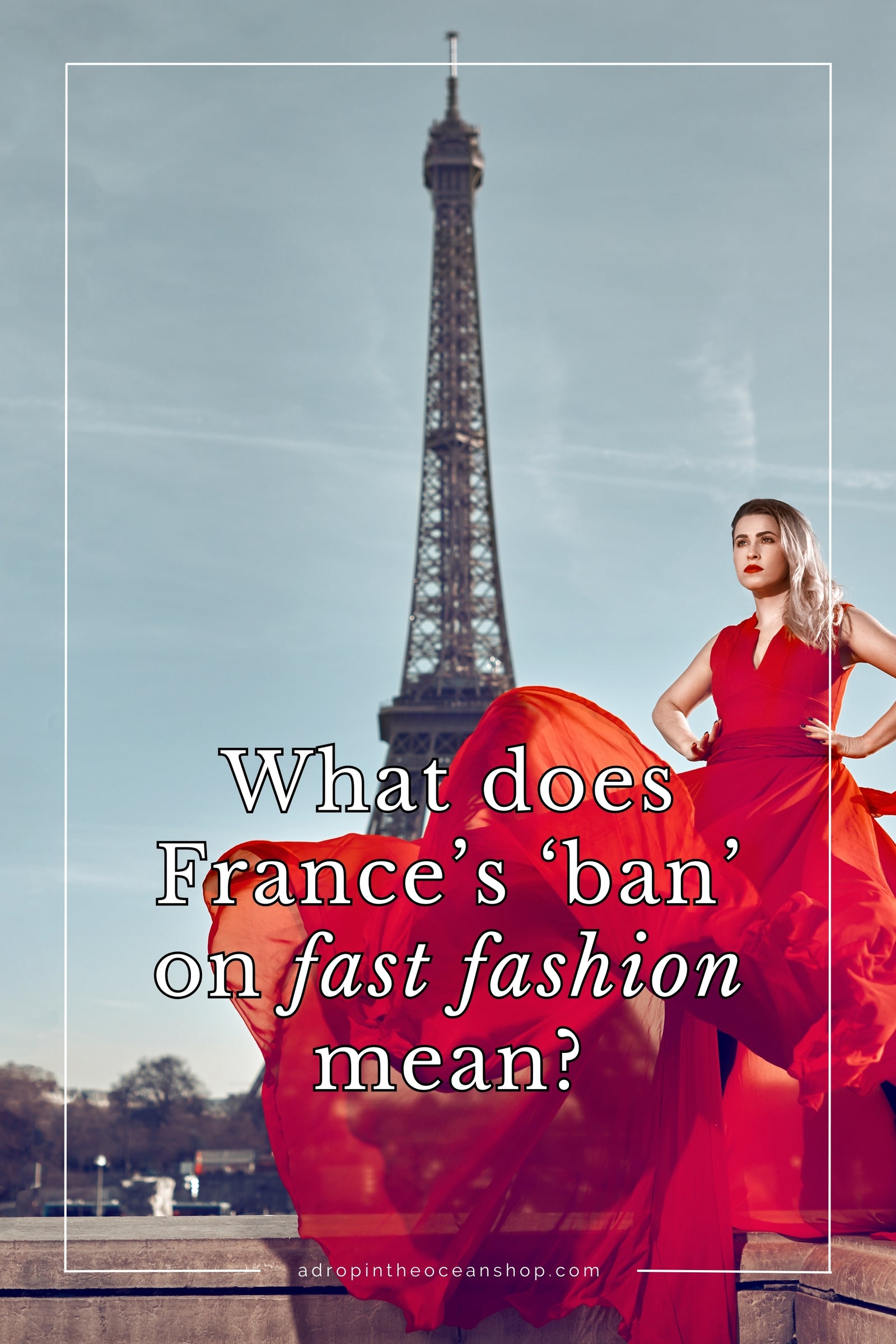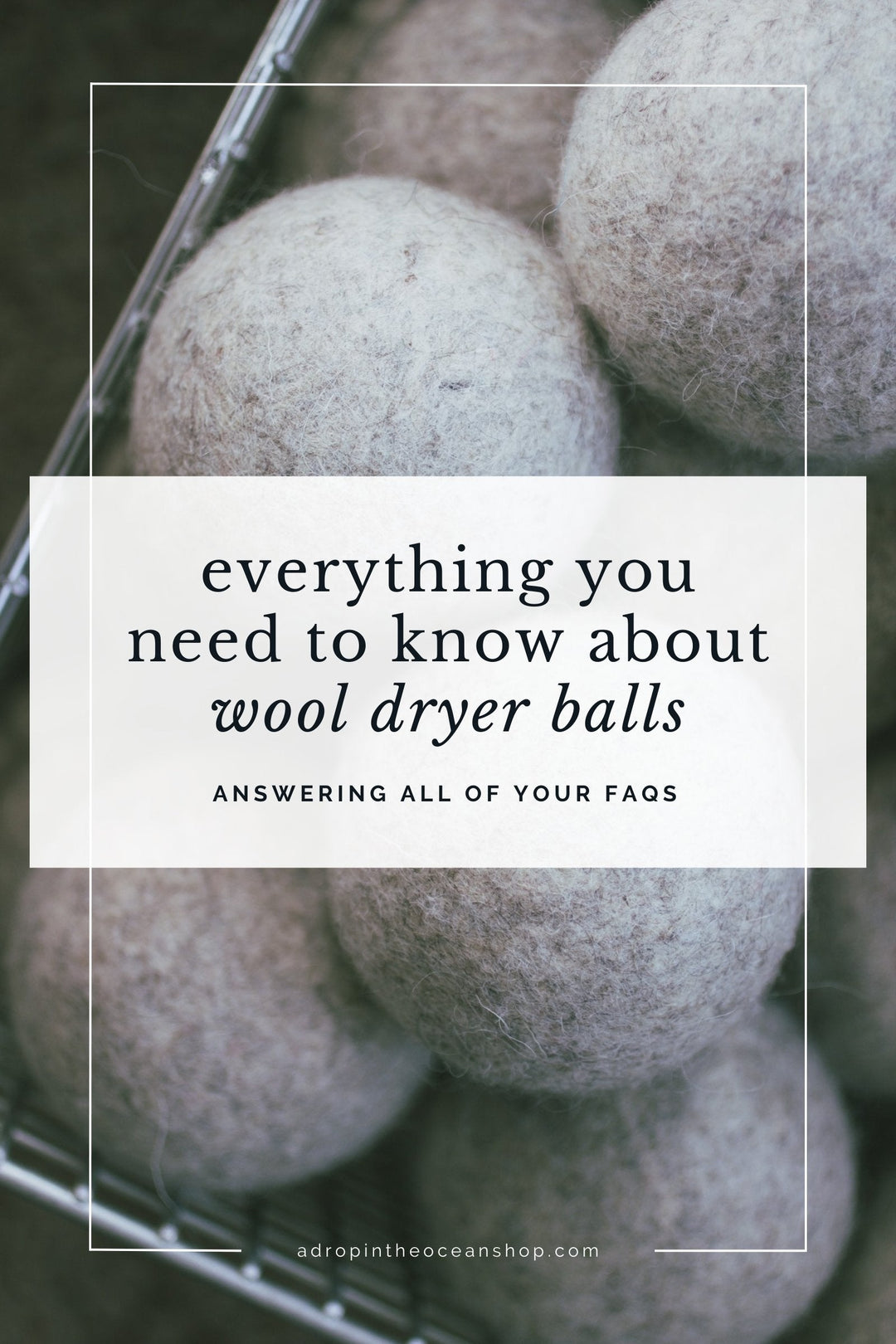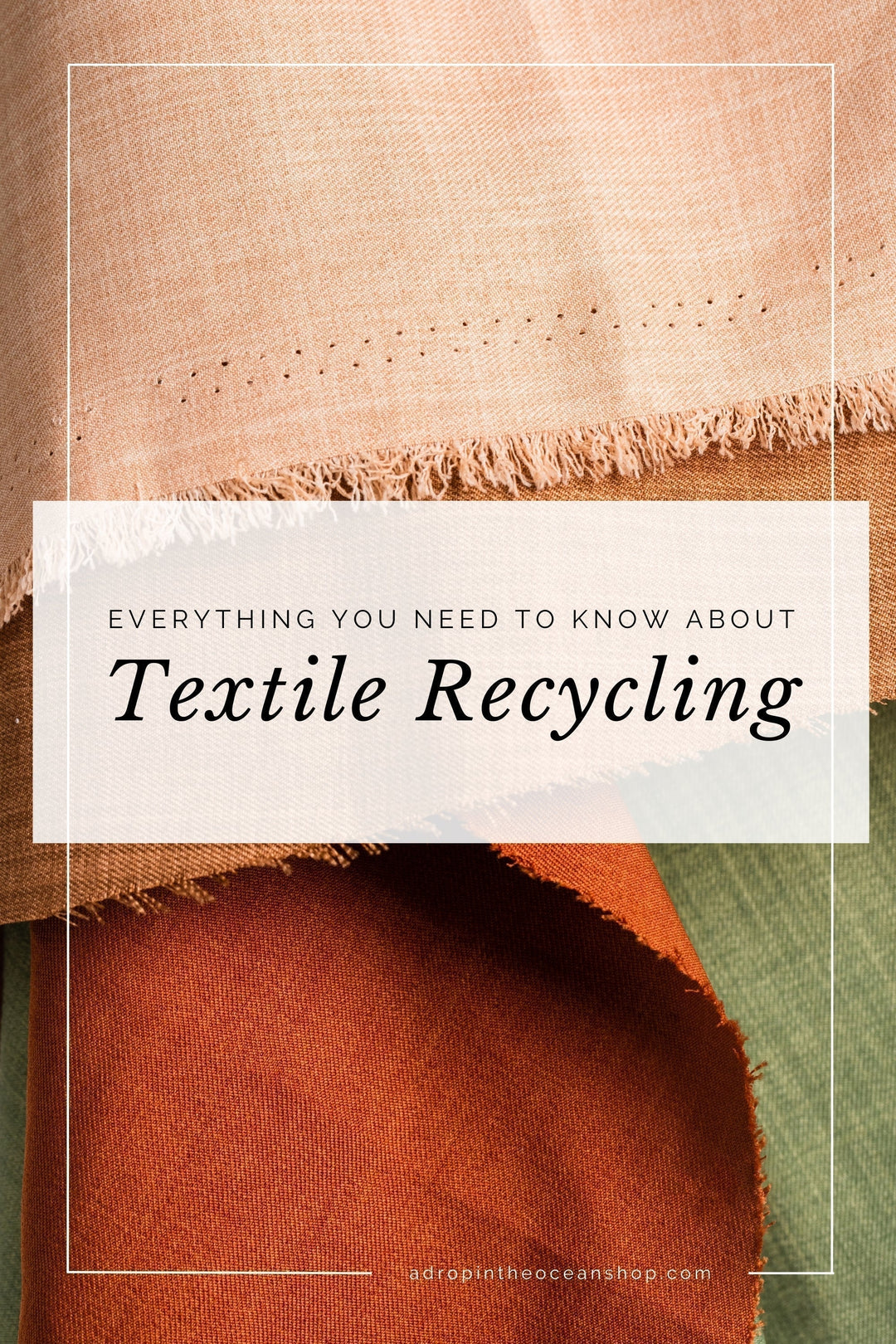Did France Just Ban Fast Fashion?

This post first appeared in our weekly Make Waves Mondays email series on May 06, 2024.
Okay SO.
About a month ago, the lower house of parliament in France unanimously approved a bill aimed at curbing the consumption of ultra-fast-fashion clothing items. It still needs approval from the senate, but we gotta talk about this, friend.
💡 Before we dive in, if you’re not familiar with fast fashion and why it’s a problem, check out our blog posts Why Sustainable Fashion Matters + What We Can Do About It and Everything You Need to Know About Textile Recycling.
Okay. Moving on.
Should the bill become law (and so far it’s looking like it will), it will target fast fashion in 3 ways:
- The law will ban advertising of ultra-fast-fashion companies in France (think brands like Shein and Temu);
- Any fast fashion brands impacted by the law would be required to include information about an item’s environmental impact near the price; and
- All fast fashion items sold will be subject to an environmental surcharge - starting at €5 (~$5.38) and rising to €10 (~$10.77) by 2030.
The bill is mostly focused on ultra-fast-fashion companies like Shein and Temu, but once it becomes law it may also include other fast fashion brands like H&M and Zara, depending on how “fast fashion” is defined.
Currently, the criteria for defining what exactly falls under the “fast fashion” umbrella hasn’t been determined yet, but once the bill becomes law it’ll be more clearly defined, using the number of new garments released per day as the main factor.
Shein, for example, releases between 7,000 and 11,000 new clothing items per day 😳
Now, I think we can agree that banning ultra-fast-fashion advertising and mandating the inclusion of environmental impacts on a garment’s price tag is an incredible step in the right direction.
So let’s talk about that surcharge for a second.
There’s not much detail about this surcharge that I can find, but here’s what I know:
- If the bill becomes law, a €5 ($5.38) surcharge on low-cost, fast-fashion garments will be implemented right away, and will gradually increase to €10 ($10.77) by 2030.
- The surcharge cannot exceed 50% of the item’s price.
- The proceeds from the surcharge will be used to subsidize “sustainable” French fashion producers to make their garments more accessible.
Social media is abuzz with this surcharge.
I’ve seen comments ranging from, “This is just another way to tax the poor,” to “I’m poor and still refuse to buy from these companies because I have values.”
But one France lawmaker explained it this way:

(source: France24)
Shein has also chimed in on the bill, saying that it’s only going to “disproportionately penalize the most cost-conscious consumers” and “worsen the purchasing power of French consumers, at a time when they are already feeling the impact of the cost-of-living crisis.” (source: BBC)
And while I do agree that there’s a whole lot more that can and should be done to make, ya know, existing on this planet accessible to literally everyone, this next statement in particular got me all:


(source: France24)
There’s a lot to unpack here, and also hits the nail on the nail with why Shein and Temu are so dang appealing to so many people.
“...Consumers who rarely have to spend more than €10 to fill their wardrobes with the latest trending skirts, tops, trousers, or accessories.”
I mentioned this in our Why Sustainable Fashion Matter blog, and these stats are now a few years old and I should go back and find updated ones, but - adjusting for inflation, home prices have risen 73% since 1960, rent has increased 46%, and public college has increased 213% just since the late 80s.
But clothing prices have plummeted, and clothing consumption has skyrocketed.
Do we really need to fill our wardrobes with the cheapest and “latest trending” clothes?
When these ultra-fast-fashion companies are putting out thousands of new items a day, how could we?
I couldn’t tell you the last new item of clothing I purchased. And quite literally zero part of me feels like I’m missing out.
And by the way…The average price of an item purchased from Shein is just €7 (or about $7.54). This means the average [maximum!] surcharge is only going to be €3.50, or about $3.77 - bringing the total average price of a garment purchased from Shein to a whole whopping €10.50, or $11.31. This is still CHEAP.
And moving beyond just ourselves here, at what point do we stop and ask ourselves if we’re more important than the people making our clothes?
Because the reality is, Shein and similar brands are using these arguments in favor of “cost-conscious consumers” to shield the fact that they literally only survive by treating the people making their clothes deplorably.
From a 2023 Time article…


So can we really say that Shein’s clothing is “affordable” when Shein itself isn’t even affording the very people making its products a safe working environment and a minimum livable wage?
All-in-all, I think this bill is a solid step in the right direction and I’m eager to see how it plays out and how it impacts these fast fashion brands as a whole, outside of France. And whether other countries start to follow suit.
But I also know there are a lot of differing opinions on it, and I would LOVE to hear yours. So comment below and lemme know!
Sources + Further Reading:
America can't resist fast fashion. Shein, with all its issues, is tailored for it (NPR)
Breaking: France limits Fast Fashion! New law explained, Fines, ad bans + hurting consumers? (The Whole Home)
Does France’s anti-fast fashion bill have legs? (Vogue Business)
Everything You Need to Know About Textile Recycling (A Drop in the Ocean)
France’s fast-fashion 'kill bill': Green move or penalty for the poor? (France24)
France’s lower house votes to limit ‘excesses’ of fast fashion with environmental surcharge (The Guardian)
Online retailer Shein targeted by fast-fashion bill in France (Nikkei Asia)
Shein Is the World’s Most Popular Fashion Brand—at a Huge Cost to Us All (Time)
What France’s crackdown on Shein and Temu means for global ultra-fast fashion (BBC)
Why Sustainable Fashion Matters + What We Can Do About It (A Drop in the Ocean)
Related:
Do we need corporate action or consumer action for zero waste?
How to [finally] break up with Amazon
Is textile recycling greenwashing or an actual waste solution? Here's everything you need to know.
What happens to all of the stuff we return?









Leave a comment